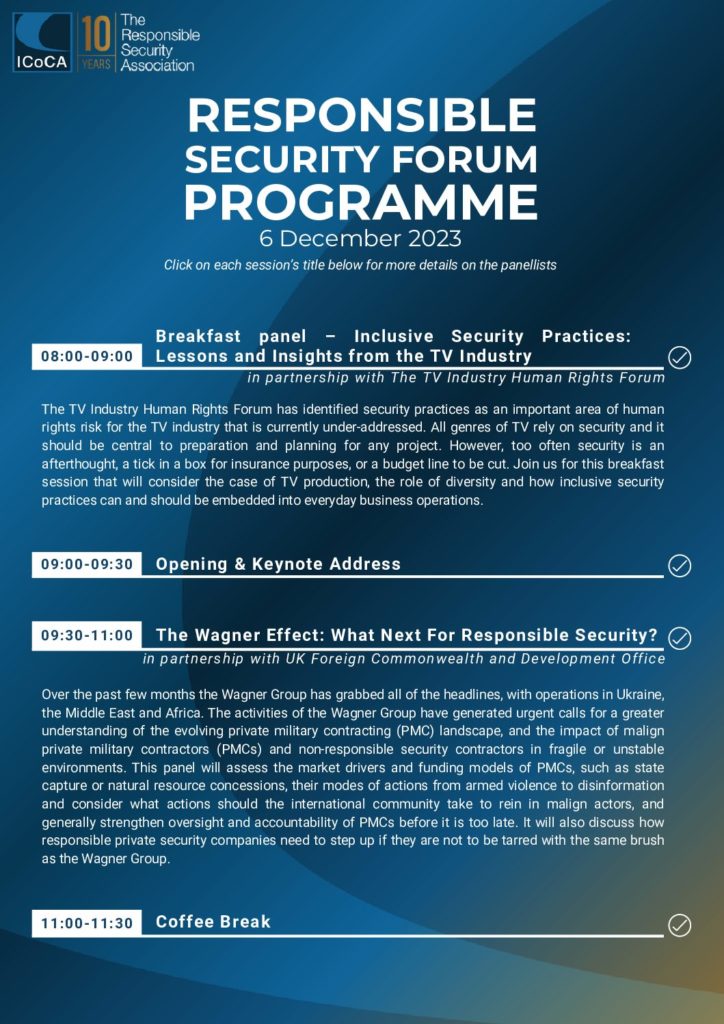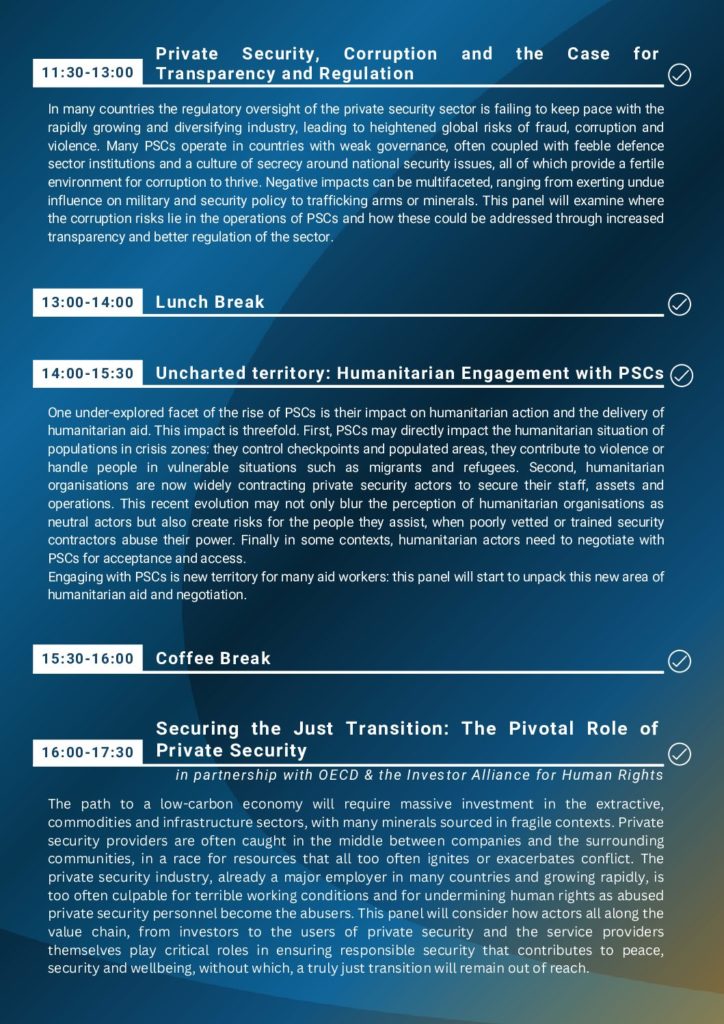RESPONSIBLE SECURITY FORUM INFORMATION AND REGISTRATION
Warning: Undefined array key "file" in /home/clients/cabc8df9f5207ad4c6a5e5e66db39a4b/sites/icoca.ch/wp-includes/media.php on line 1768
Warning: Undefined array key "file" in /home/clients/cabc8df9f5207ad4c6a5e5e66db39a4b/sites/icoca.ch/wp-includes/media.php on line 1768
ICoCA is organising the first-ever Responsible Security Forum on 6 December 2023, in Geneva, Switzerland. This inaugural annual event on private security aims to bring together security practitioners, experts, and researchers to assess the evolving security landscape and explore innovative solutions. The topics to be covered include ensuring a just energy transition, humanitarian engagement with private security companies, the impact of Wagner on the future of security, transparency, and corruption, among others.
This event is open to everyone, and the programme and accommodation options are shared below.
Please note this will be an English-speaking in-person event only.
PROGRAMME
Date: 6 December 2023
Venue: FER Genève, rue de Saint-Jean 98, 1201 Geneva, Switzerland
ACCOMMODATION
Plan your visit and book your accommodation with one of our partner hotels:
- The Design Hotel f6: Contact them by email at info@hotel-f6.ch, and get a discounted rate with the code “Icoca/12/23“.
- Manotel Group: Make your reservations through this link and choose your hotel, by selecting your check in and check out dates.
- Hotel International & Terminus: Make your reservations through this link and enter the code “ICOCA” in “Promo Code” to automatically get a 10% discount.
- Ibis Geneva Centre Gare Hotel: Make your reservations directly here. This hotel is very close to the event.


